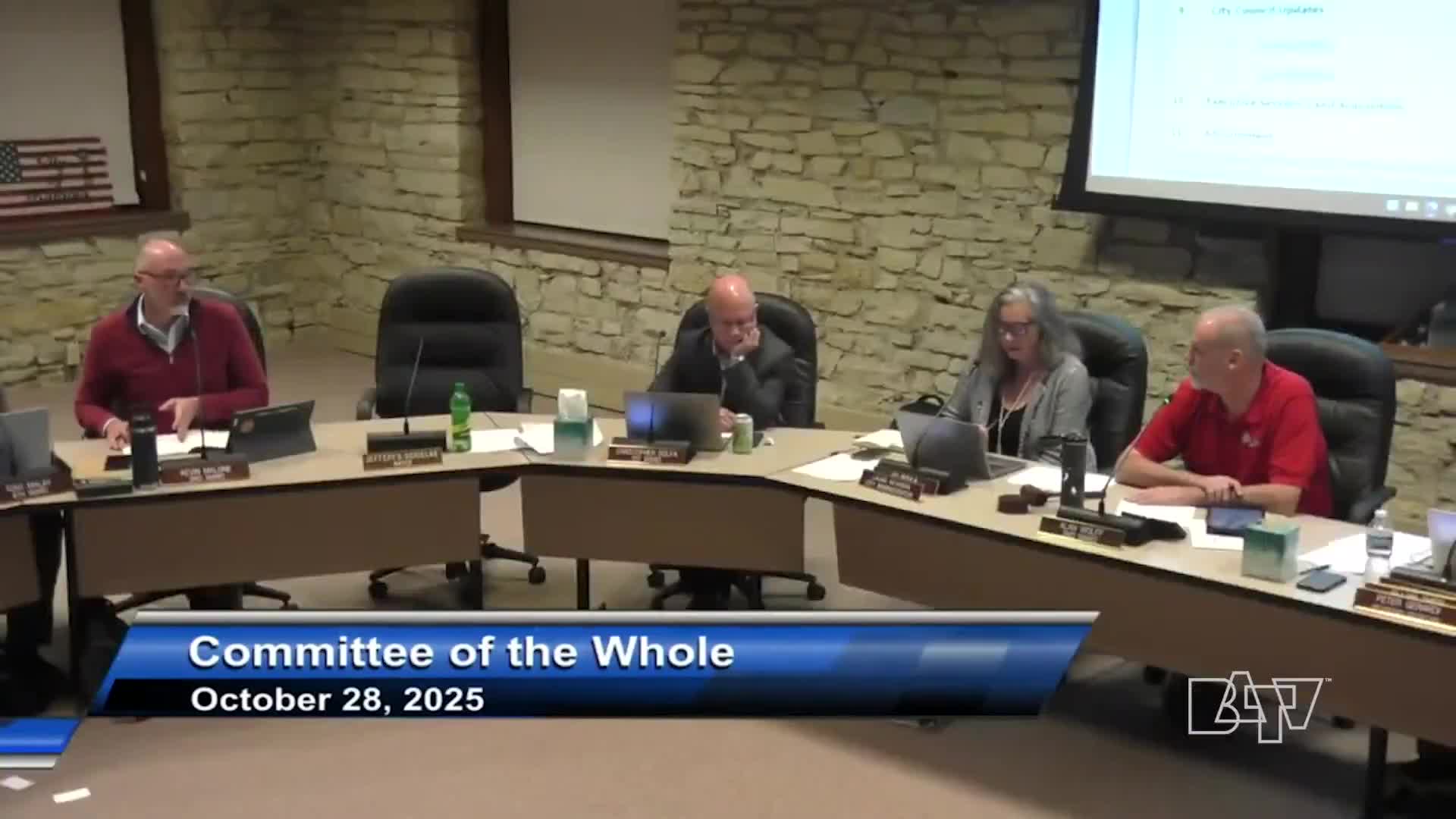After extensive public comment, Batavia committee directs staff to draft ordinance limiting civil immigration enforcement on city property
Get AI-powered insights, summaries, and transcripts
Subscribe
Summary
The Batavia Committee of the Whole voted Oct. 28 to direct staff to draft an ordinance restricting the use of city-owned property for civil immigration enforcement absent a judicial warrant, after extended public comment and council debate.
The Batavia Committee of the Whole voted Oct. 28 to direct city staff to draft an ordinance that would limit civil immigration enforcement on city-owned property. The decision followed an extended staff briefing, remarks from council members and a three-hour public-comment period in which 39 people spoke for and against the proposed measure.
Alderman Malone, who asked that the item be placed on the agenda, framed the proposal as limited to “what the city can do with its property,” not as a change in federal immigration policy. “We are not talking about immigration policy,” Malone said in his opening remarks. He urged the council to use local authority over municipal property and resources to protect due process, safety and dignity for residents and to designate sensitive locations such as schools, libraries and city services as places to avoid civil immigration enforcement when possible.
Staff had compiled model language and practices from other local governments (Chicago, Carpentersville, Evanston) and counties (Will and Lake counties). The staff summary said typical elements in comparable ordinances focus on restricting staging or processing sites on publicly owned or controlled land, call for signage and identify exceptions covering federal criminal enforcement and valid judicial warrants. Staff also noted Batavia already follows the Illinois Trust Act (state law that restricts local participation in federal civil immigration enforcement), and that any local measure must be framed to avoid conflict with federal supremacy.
Speakers at the public hearing included residents, veterans, faith leaders, health-care providers and an immigration attorney. Supporters described fear among immigrant families, reported declines in attendance at schools and food pantries, and urged the city to designate ‘‘ice-free’’ spaces and provide Know‑Your‑Rights trainings. Several speakers urged the council to adopt symbolic and operational protections because, they said, federal civil enforcement actions have caused community trauma and decreased engagement with public services.
Opponents said they support immigration laws but warned that local limitations could hamper criminal enforcement and urged the council to consult legal experts before moving forward. An immigration attorney who spoke warned the council to consider potential municipal liability if the city becomes associated with improperly conducted federal operations.
After public comment, council members debated legal enforceability and the proper scope of a local ordinance. Several members noted the Illinois Trust Act already constrains local cooperation with federal civil immigration enforcement. Others said that even if an ordinance is largely symbolic it would send a values-based message about Batavia’s priorities and could reduce fear in affected communities.
Alderman Malone moved that staff draft an ordinance to bar civil immigration action on city property without a judicial warrant, to create reporting protocols (including notifications when city property is used for staging or processing), to identify and seek to protect sensitive locations such as schools and libraries, to require clearly marked federal law-enforcement identifiers and to provide staff training for implementation. The motion was seconded and carried; the council recorded aye votes in roll call and instructed staff to return with draft ordinance language for further consideration.
Staff and the mayor pro tem said next steps will include drafting ordinance language that avoids duplicating or contradicting the Illinois Trust Act, specifying reporting and signage procedures, and consulting with relevant legal counsel and partner agencies. The item will return to the council in a future meeting for ordinance review and possible adoption.
